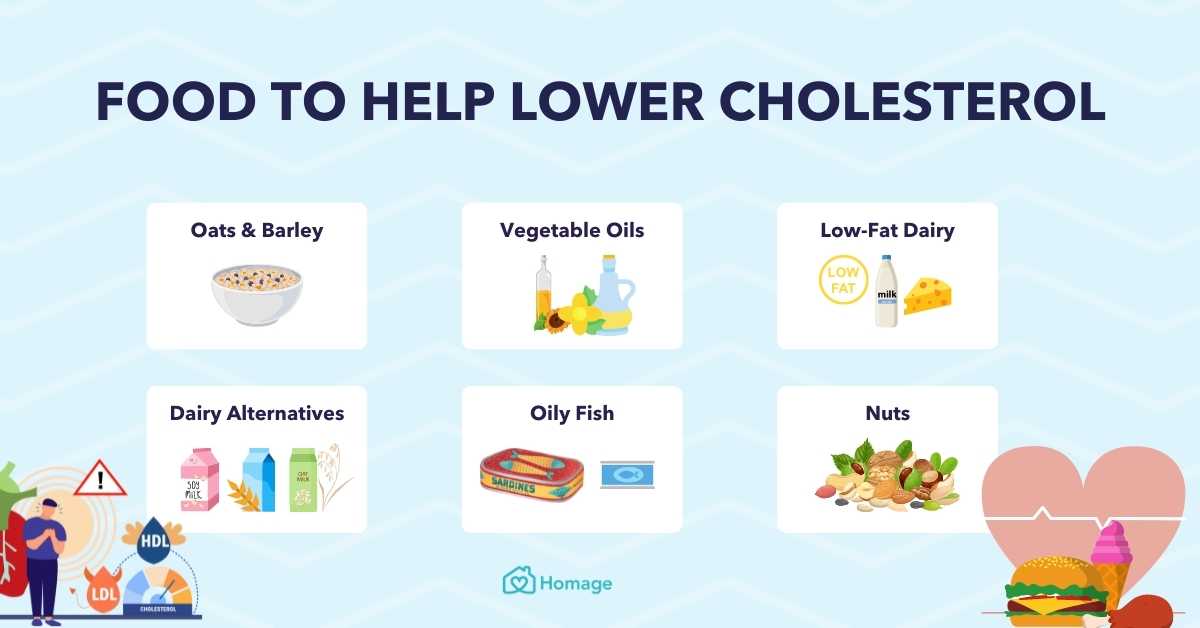Main Causes of High Cholesterol and Harmful Effects on the Body
 |
Main Causes of High Cholesterol and Harmful Effects on the Body // Dreamstimes.com |
Learn about the main culprits behind high cholesterol levels and harmful effects of unhealthy eating habits, along with tips for making healthier choices.
High cholesterol is a common health issue that affects many people around the world. One of the main causes of high cholesterol is unhealthy eating habits. If you have high cholesterol, it is important to understand what types of foods to avoid and which ones to eat in moderation.
We will discuss some eating habits you must stay away from if you want to keep your cholesterol levels in check and maintain a healthy body.
5 Unhealthy Eating Habits You Must Avoid for Lowering High Cholesterol Levels and Maintaining a Healthy Body
> Eating Trans Fats
Trans fats are a type of unsaturated fat that is commonly found in processed foods. They are often used in products like cakes, cookies, and fried foods to extend their shelf life. Eating foods that contain trans fats can increase your bad cholesterol levels (LDL) and decrease your good cholesterol levels (HDL), which can lead to various health problems.
Some foods that commonly contain trans fats include margarine, shortening, and processed snacks. To avoid trans fats, try to eat fresh, whole foods as much as possible and limit your consumption of processed foods.
> Consuming Too Much Saturated Fat
Saturated fat is another type of fat that can increase your LDL cholesterol levels. This type of fat is commonly found in foods like fatty meats, butter, cheese, and cream. Eating too much saturated fat can lead to plaque buildup in your arteries, which can increase your risk of heart disease and stroke.
To reduce your intake of saturated fat, try to eat more plant-based foods like fruits, vegetables, and whole grains. If you do eat animal products, choose leaner cuts of meat and low-fat dairy products.
R E A D : Making Fast Food Healthier: How to Make Informed Choices for a Balanced Diet on-the-go
> Overeating Sugar and Refined Carbohydrates
Eating too much sugar and refined carbohydrates can also contribute to high cholesterol levels. When you eat foods that are high in sugar and refined carbohydrates, your body produces more insulin, which can lead to the production of more LDL cholesterol.
Foods that are high in sugar and refined carbohydrates include soda, candy, white bread, and pasta. To reduce your intake of these foods, try to eat more whole foods like fruits, vegetables, and whole grains.
 |
| Unhealthy Eating Habits to Avoid // iStock |
> Skipping Meals
Skipping meals can also contribute to high cholesterol levels. When you skip meals, your body may produce more LDL cholesterol to provide energy to your cells. This can cause an imbalance in your cholesterol levels, which can increase your risk of heart disease and stroke.
To avoid this, try to eat regular, balanced meals throughout the day. This will help keep your blood sugar levels stable and prevent your body from producing excess cholesterol.
> Eating Too Much Salt
Eating too much salt can also contribute to high cholesterol levels. When you eat foods that are high in salt, your body may retain more water, which can increase your blood pressure. This can cause damage to your arteries, which can increase your risk of heart disease and stroke.
To reduce your intake of salt, try to eat more whole foods and limit your consumption of processed foods. You can also use herbs and spices to flavor your food instead of using salt.
Here are some additional tips to help you maintain healthy cholesterol levels:
 |
| Tips to help you maintain healthy cholesterol levels // Homage Malaysia |
>> Increase Your Fiber Intake
Fiber can help lower your LDL cholesterol levels by binding to cholesterol in your digestive system and preventing it from being absorbed into your bloodstream. Good sources of fiber include whole grains, fruits, vegetables, nuts, and seeds.
>> Eat More Healthy Fats
Healthy fats, such as those found in avocados, nuts, seeds, and fatty fish like salmon, can help raise your HDL cholesterol levels and lower your triglyceride levels. These types of fats are also important for maintaining healthy brain function and reducing inflammation in your body.
>> Exercise Regularly
Regular exercise can help increase your HDL cholesterol levels and lower your LDL cholesterol levels. Aim for at least 30 minutes of moderate-intensity exercise most days of the week, such as brisk walking, cycling, or swimming.
R E A D : Dietary Changes for Lower Blood Pressure: 10 Best Habits Recommended by Dietitians
>> Quit Smoking
Smoking can damage your blood vessels and increase your risk of developing heart disease. If you smoke, quitting is one of the best things you can do for your overall health and cholesterol levels.
>> Manage Your Stress
Chronic stress can lead to inflammation in your body and increase your risk of developing high cholesterol levels. Find healthy ways to manage your stress, such as meditation, yoga, or spending time in nature.
Maintaining healthy cholesterol levels is important for overall health and reducing the risk of developing heart disease and stroke. By avoiding unhealthy eating habits, increasing your fiber intake, eating more healthy fats, exercising regularly, quitting smoking, and managing your stress, you can keep your cholesterol levels in check and maintain a healthy body.
Your eating habits play a crucial role in determining your cholesterol levels and overall health. By making small changes to your diet and lifestyle, you can significantly reduce your risk of developing high cholesterol levels and related health problems. Remember to choose fresh, whole foods, limit your consumption of processed foods, and stay active to maintain a healthy body. Consult your doctor if you have concerns about your cholesterol levels or need further guidance on making healthy lifestyle choices.
R E A D :
- Understanding Major Depressive Disorder Symptoms Causes and Treatment Options
- Understanding Pot Syndrome: Symptoms, Causes, Treatment, and Prevention
- Body Odor and Diabetes Understanding the Connection and What You Can Do About It
- Brain Health: 10 Essential Steps to Keeping Your Mind Sharp and Active

No comments:
Post a Comment